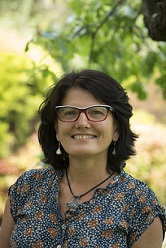Students want more from school sex ed, new survey reveals
Media releaseSchool-based education programs have edged out friends and parents as secondary students’ most used source of information about sexuality and relationships in a new survey by Deakin University and the University of South Australia.
The survey of 2,325 students aged between 13 – 16 years also revealed that students want more from school-based programs than just a biology lesson, with information about violence in relationships, gender issues, and sexual diversity high on the wish list.
The survey results form the basis of a new report,It’s not all about sex: Young people’s views about sexuality and relationship education, launched in Adelaide today by the Honourable Dr Susan Close MP, Minister for Education and Child Development.
The survey found that:
- 77% of girls and 74% of boys cited school sex education programs as their number one source of information about sexuality and relationships, with friends coming in as their second most likely source; and
- For girls, mothers were their most trusted source of information about sexuality and relationships at 67% of students, but school programs came a close second with 64% and 68% of boys putting school programs at the top as their most trusted source of information.
Dr Debbie Ollis, Senior Lecturer in Education at Deakin University and a co-author of the report, explained that the student perspective is often missing in the development and evaluation of sexuality and relationships education classes.
“To an extent, the old school methods of teaching sex education are still in place, with a focus on biological and physiological aspects, but students are telling us they want learning to extend beyond how to put a condom on a banana,” Dr Ollis said.
“They want to know more about how to handle the emotional side of relationships – respect, love, starting a relationship, breaking up, sexual pleasure, and a host of other topics.
“The survey shows that students place a lot of trust in what is taught in school programs. This means that we have a responsibility to make sure programs are relevant and inclusive.”
The survey revealed:
- Girls wanted to learn more about gender diversity (52%), violence in relationships (54%) staying safe online and ending a relationship, while boys wanted more information on how to have sex (38%), sexual pleasure (38%), different sexual acts, masturbation and pornography;
- However, both boys and girls said they wanted to know more about love and starting a relationship;
- More girls than boys said they felt embarrassed learning about sexuality and relationships in mixed gender classes;
- 51% of the Victorian students surveyed reported that they felt embarrassed, uncomfortable or annoyed during sexuality and relationship classes, whereas in SA only 40% reported the same; and
- 81% of SA students said they had been taught about respect in relationships but only 75% of Victorian students reported the same.
Dr Ollis said the survey responses showed students wanted more information about two key issues – gender diversity and violent relationships.
“The survey results prove that our politicians are completely out of date, particularly in the context of the ongoing national debate around the Safe Schools Coalition,” Dr Ollis said.
“The survey also revealed that some students regard pornography as a trusted source of information. It paints a very clear picture that if we don’t want kids to access pornography, we need school-based programs to be more explicit about what sexual relationships are all about.”
The research has been undertaken as part of the Engaging Young People in Sexuality Education Research Project funded by the Australian Research Council and supported by the Departments of Education (DECD and DEECD) in South Australia and Victoria.
More information about the research is available at the Engaging Young People in Sexuality Education Research Project website.
Share this story
 Dr Debbie Ollis, Senior Lecturer in Education at Deakin University and a co-author of the report.
Dr Debbie Ollis, Senior Lecturer in Education at Deakin University and a co-author of the report.
